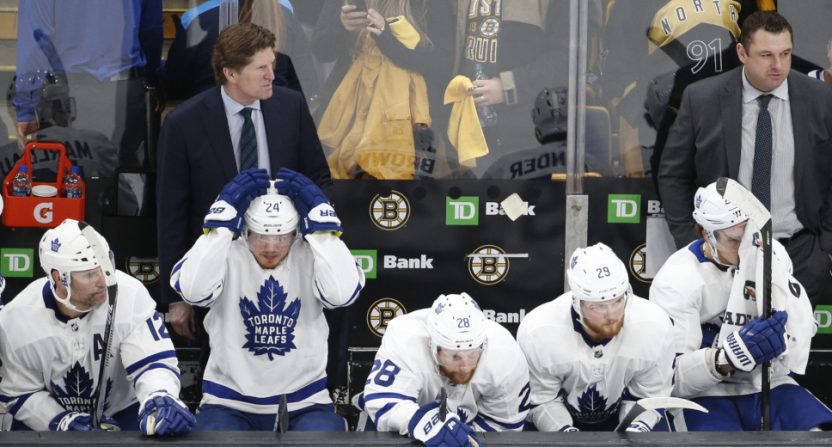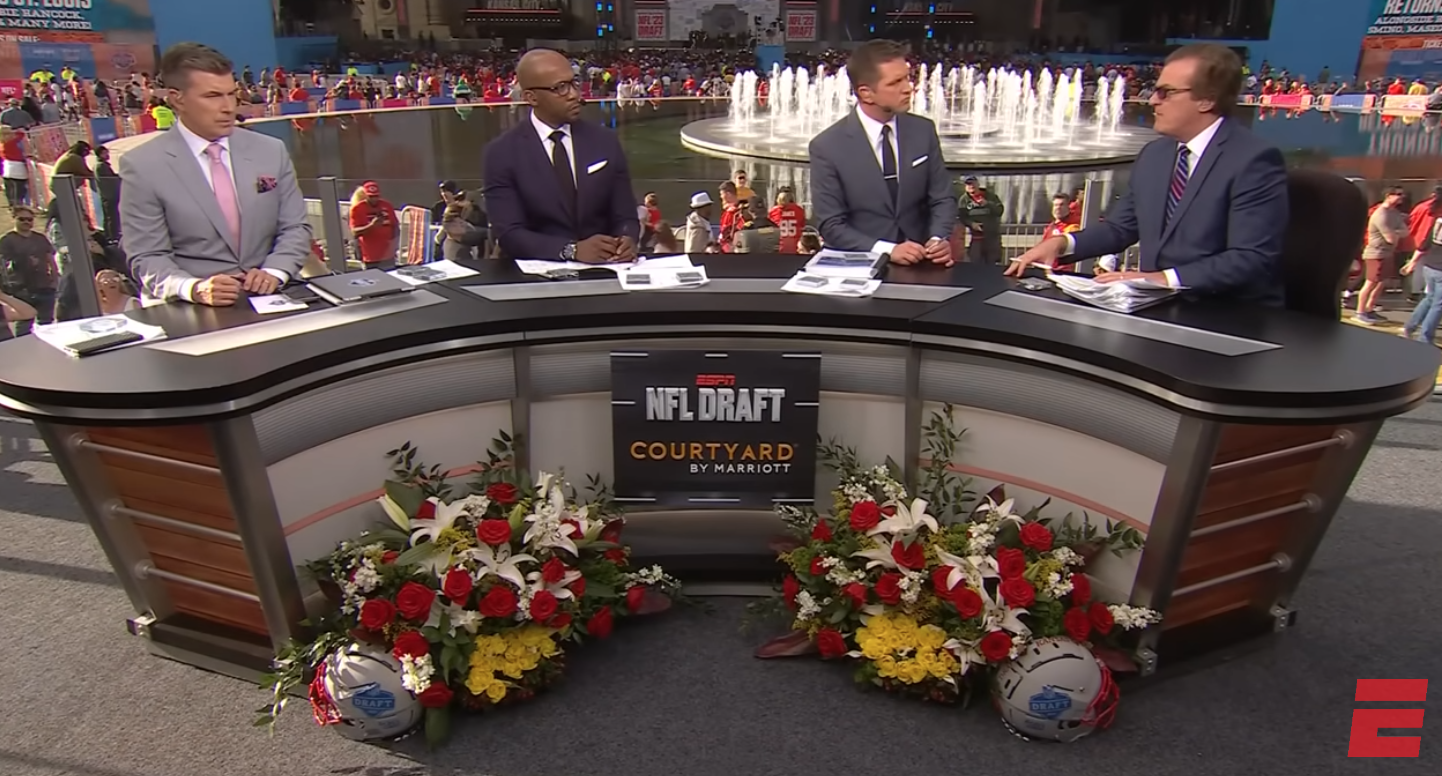With Rogers Communications signing a giant deal for national Canadian English-language NHL rights in 2013, paying $5.2 billion Canadian over 12 years (around $3.9 billion U.S. at the current exchange rate), there’s been substantial talk about if that’s been worth it for them. The ratings often haven’t been great, and the company’s made plenty of cuts during that timeframe; they have repeatedly denied that the NHL deal has anything to do with other cutbacks and insisted that the deal is profitable, but there’s some outside skepticism of that. But an important factor in how good or bad that deal is is the performance of Canadian teams, especially when it comes to the playoffs.
That deal looks perhaps particularly bad for Rogers in years where no Canadian teams make the playoffs (2015-16) or where the teams involved exit in the first round (this current season). As long-time Canadian TV analyst Bill Brioux writes, the national viewership changes dramatically when a Canadian team’s involved; for example, there were 3.7 million combined viewers on CBC and Sportsnet Sunday for Game 6 of the Toronto Maple Leafs-Boston Bruins series, but just 842,000 Monday for Game 6 of the Washington Capitals-Carolina Hurricanes series. And with all the Canadian teams involved crashing out in Round 1 this year, there’s been a further uptick in “What does this mean for Rogers?” pieces.
But while there’s no dispute that a playoffs with no further Canadian teams will mean lower viewership and money (through make-good offers to advertisers in exchange for low ratings, at least) for Rogers, some data analysis shows more Canadian teams actually made the playoffs in the last five seasons (the Rogers era) than in the previous five seasons when TSN and the CBC had the rights. The runs weren’t always as deep, but more teams were in the playoffs and there were more team-rounds. (Note that while games are still aired on CBC under the Rogers deal, they’re now sublicensed; Rogers sells the ads for those games and gets the advertising revenue.) Here’s a table showing Canadian NHL teams’ playoff performances in the past ten years, the final five under the TSN/CBC deal and then the first five years so far of this Rogers deal:
A few notes there: “team-rounds” is one per team per round (so 2010-11’s postseason saw Vancouver make the fourth round, the Stanley Cup Final, while Montreal only made the first round, providing five total team-rounds), and the Leafs’ status is included because they tend to be the biggest national draw on English-language Canadian TV, so a Toronto appearance in Round 1 is probably worth slightly more to networks than any other Canadian team appearing in that round. But even without adjusting for the Leafs (who have made the playoffs three times so far in the Rogers era, and only did so once in those last five TSN/CBC years), Rogers comes out slightly ahead in both Canadian teams in the playoffs (three on average versus 2.4) and team-rounds (4.4 to 4.2).
Of course, there are some further factors to consider. For one, the makeup of the league has changed slightly over this time. The Atlanta Thrashers relocated to become the Winnipeg Jets ahead of the 2011-12 season, boosting the Canadian teams from six out of 30 to seven of 30 (20 percent to 23 percent of the league), so that affects the last three TSN/CBC seasons and the first three Rogers seasons. The Vegas Golden Knights then came in as an expansion team last year, making the team total 31, so Canadian teams have been 22.58 percent of the league for the last two seasons.
So that means that overall there’s a minor edge to the Rogers era in terms of Canadian teams’ percentage of the league. And that, if all other things were equal, would presumably lead to more Canadian teams in the playoffs and making runs in the playoffs. However, that’s not a huge percentage change, and it’s one that also was in effect for the last three years of the TSN/CBC deal.
One potentially stronger argument that the Canadian performances in the last five years of TSN/CBC were more valuable is from the depth of runs, as viewership tends to increase as the playoffs go on; the Stanley Cup Final unsurprisingly draws more attention than the first round. And the last five years of TSN/CBC saw one Canadian team in the Stanley Cup Final (Vancouver in 2010-11) and two other runs to a conference final (Montreal in 2009-10 and 2013-14), while Rogers has seen only one team make a conference final so far (Winnipeg last year).
And that late-rounds boost can be massive. For example, CBC averaged 6.15 million viewers for Boston/Vancouver in 2011, way up over 3.10 million for Chicago-Philadelphia in 2010, and Sportsnet/CBC averaged 2.7 million for Vegas/Washington last year. So there’s an argument that the Cup final run alone makes the TSN/CBC last five years slightly better than the Sportsnet ones overall. And if you go back another five seasons beyond the data considered here, that would add in Edmonton’s run to the final in 2006 and Calgary’s in 2004 (the lockout meant there was no playoffs in 2005). So Rogers perhaps has gotten a little unlucky relative to past results that they’ve only had one Canadian team in a conference final in the last five years (versus three for TSN/CBC in the five before that) and none in the Stanley Cup Final, and maybe some of their projections were gambling on those really deep runs. But they certainly can’t claim that they’re getting less Canadian playoff teams than TSN/CBC did.
Of course, this is only a limited conclusion. It doesn’t mean that the overall Rogers NHL deal is necessarily worth it, as that’s much more about what revenues they’re bringing in compared to what they’ve spent here and about how having the NHL affects their carriage fees and their other operations (and it’s very difficult to get an accurate picture of that entire situation from the outside). Whether they overpaid for the NHL can still be debated even if they wind up with a team making the final at some point soon.
But it’s important to note that the run of Canadian playoff appearances in the Rogers era really isn’t worse than it was near the end of the TSN/CBC era, which is what they presumably used for their projections of what NHL rights were worth. So if they are facing NHL challenges, it’s not really from Canadian teams underperforming relative to the recent past (with perhaps the exception of getting all the way to the final, but that’s incredibly hard to predict). Rogers’ run of Canadian teams at least appearing in the playoffs is actually a bit better than TSN/CBC’s was. And thus, if the value of their NHL deal is debatable, it’s not really the teams’ fault.






